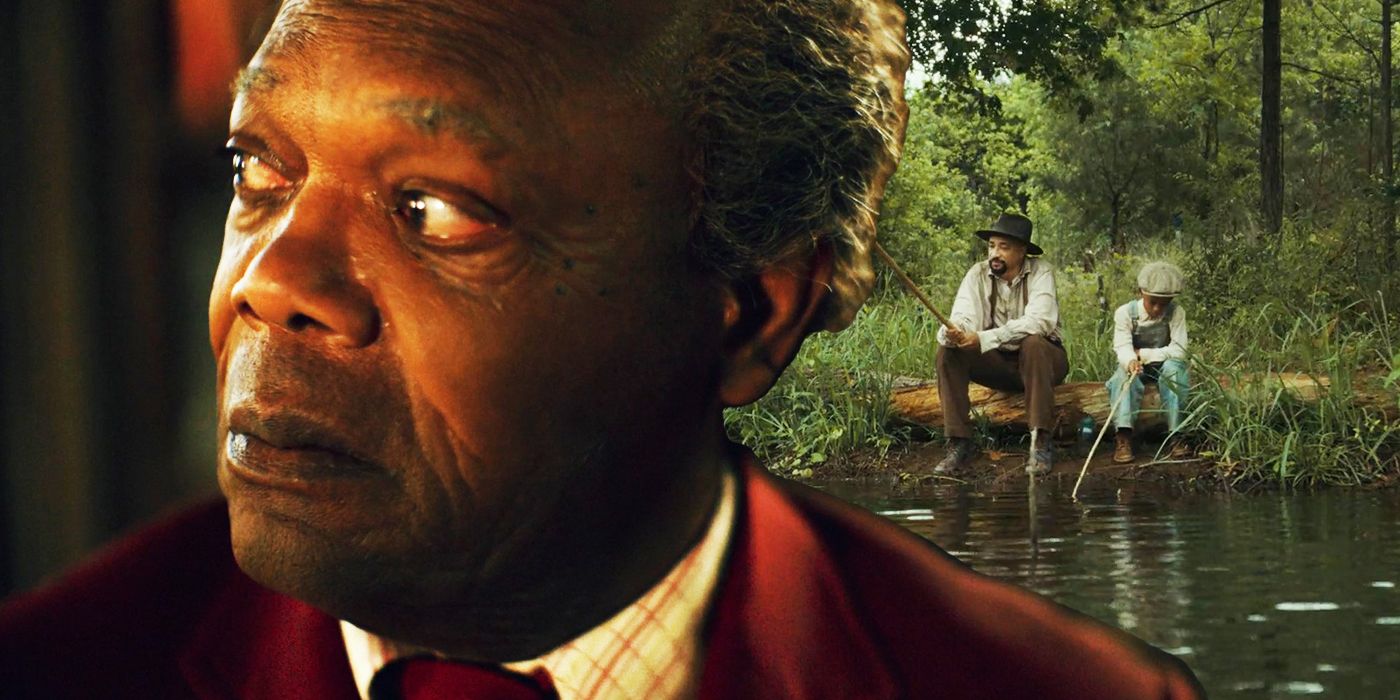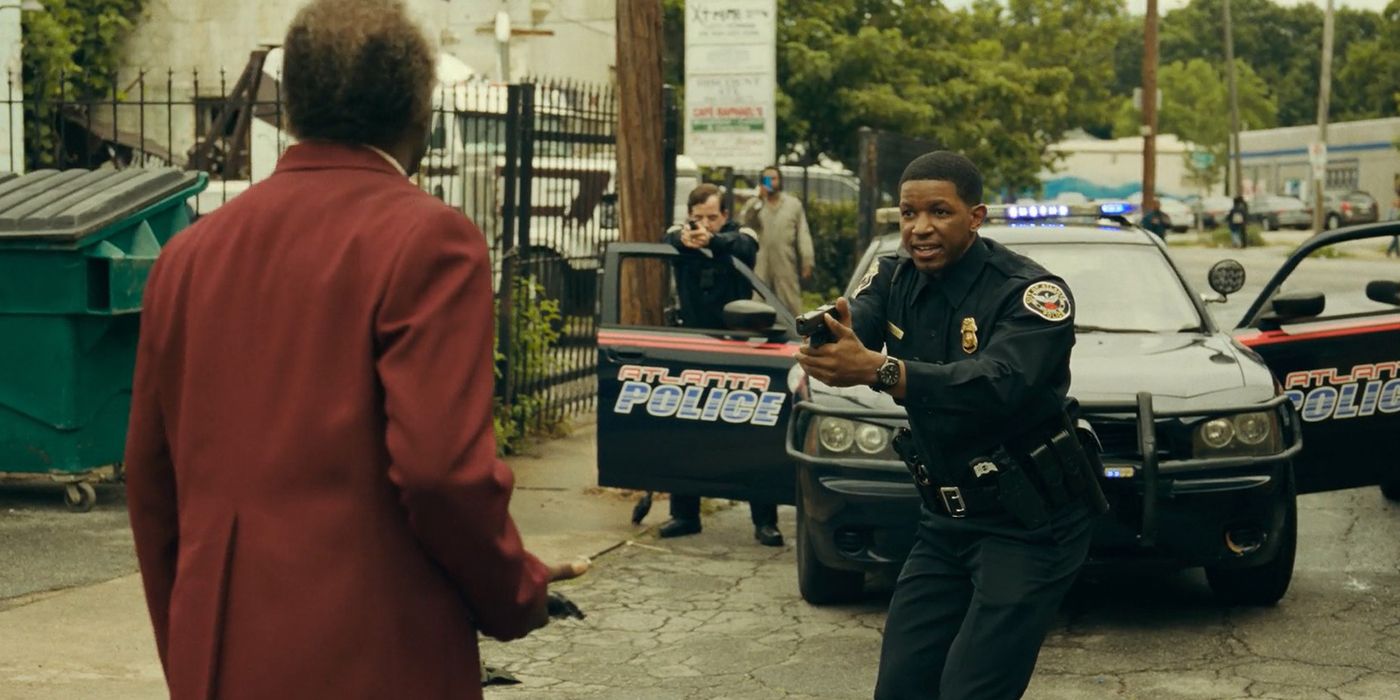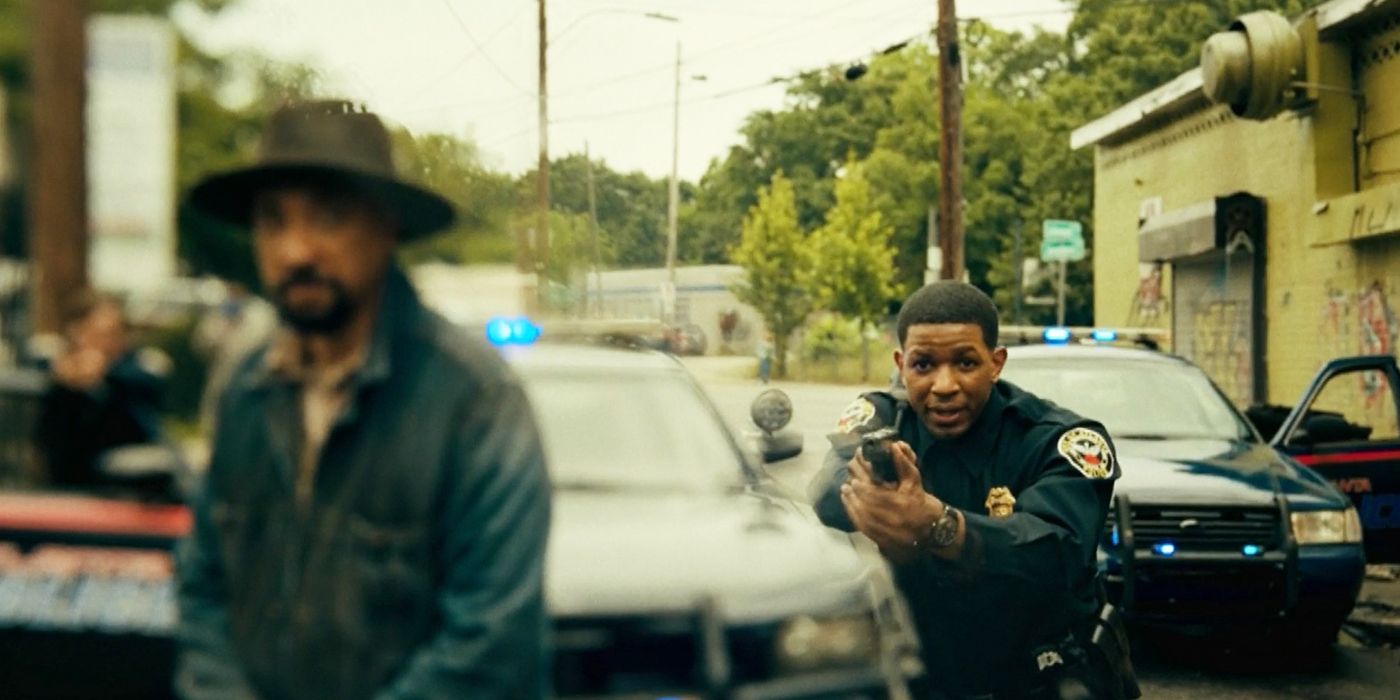Warning: the following contains SPOILERS for The Last Days of Ptolemy Grey.
The Last Days of Ptolemy Grey is Apple TV's 6-episode miniseries adaptation of a 2010 novel of the same name, and its ending lays to rest all doubts about the show's loyalty to the source material. This isn't surprising, considering how the novel's author Walter Mosley not only wrote the show's screenplay, but is also credited as the show's creator. Moreover, prior to the show's production, Samuel L. Jackson reportedly spent a decade trying to get the series off the ground and practically obsessing over the main character, which explains Jackson's stellar performance as Ptolemy Grey. In short, Apple TV's The Last Days of Ptolemy Grey is a passion project between great minds, and its ending perfectly pays tribute to the novel's bittersweet take on social reality, sci-fi, and detective stories.
After confirming that Alfred killed Reggie, Ptolemy shoots Alfred in his apartment, and Alfred escapes only to die on the street. Ptolemy is taken into police custody, and as Dr. Rubin's drug wears off, Ptolemy's dementia takes over once more, leaving Ptolemy institutionalized until his death. Meanwhile, Robyn struggles to execute Ptolemy's will and long-term plans for Coydog's treasure as Niecie and Ptolemy's family fight Robyn for control of the fortune – exactly as Ptolemy predicted.
The Last Days of Ptolemy Grey is an epic tale of Black American history, strung together by light sci-fi, Mosley's signature flare for detective and noir storytelling, and a stellar cast of characters. Although there's no single true story that inspired Ptolemy Grey's life, Mosley's tale is informed not just by personal experience, but also by the social realities faced by Black communities on a daily basis. Here's everything that you might have missed in the ending of The Last Days of Ptolemy Grey.
The Terms Of Ptolemy Grey's Will And Plans For Coydog's Treasure
Although the exact value of Coydog's gold doubloons is unspecified, they're estimated to be worth millions of dollars. Apart from monthly stipends to Niecie and Nina's families, Ptolemy's long-term plans for the money includes college tuition for the kids. Most importantly, Ptolemy's will specifies the creation of “a leadership grant for young Black people trying to do better,” the details of which he left to Robyn and Mr. Abramovitz, who are working on setting up a foundation using the money. In short, Ptolemy was successful in doing right by Coydog. This is crucial because, apart from vividly illustrating the effects of insomnia, Ptolemy's hallucinations about Coydog also represent the intergenerational struggle of Black people for survival and social justice. Indeed, Coydog's treasure was stolen from the profits of a family of slavers and sharecroppers, and his plan of using it to help the community could only be executed by the next generation. Just as Coydog sacrificed his life for the treasure, Ptolemy had to sacrifice his mind, and in turn, Robyn sacrifices her family ties just to ensure that Coydog's vision comes true. The final fate of Coydog's treasure represents the hopes, dreams, and struggles of Black people in America.
Why The Cop Knew Who Ptolemy Was
During the most emotionally charged moment in the entire series, Ptolemy is holding a gun in the street while surrounded by cops, who are pointing their guns at Ptolemy and telling him to drop his weapon. A couple feet away lies the man that Ptolemy shot - Alfred, the man who killed Ptolemy's nephew Reggie. Whether it's the drug wearing off or the trauma from what just happened, Ptolemy is not his sharp self, rambling to himself and not complying with police orders. Before the situation escalates, a Black cop slowly approaches Ptolemy and pleads with him to stand down, saying, “I see you, Mr. Grey,” before gently taking Ptolemy's gun from his hands. The cop knows Ptolemy because he's one of the cops who accompanied the social services agent who went to Ptolemy's apartment at Niece's behest a couple of days ago, during which Ptolemy cleverly got the cop to divulge information about Reggie's case by appealing to his sense of justice.
Like Reggie, the cop fits Ptolemy's description of “good men” who look out for both children and the elderly in the community. Not only does the cop know Ptolemy, he also knows that the man lying dead in the street is the man who killed Reggie. This underscores the lengths to which Black people need to go to pursue justice in America. The legal system is rigged against minorities, and Black police officers are in a place where they can actually do something about it.
Why Niecie Won't Stop Fighting Robyn
Niece's decision to continue fighting Robyn reflects the never-ending fight for the future of the Black community. Sometimes, even internal forces will seek to derail this fight, but it's the next generation's job to ensure that the community is safe and well taken care of. This underscores the importance of not just caring for family, but also community as well; a core ideal in Coydog's vision. This is why even though Coydog isn't related to Ptolemy, and Ptolemy isn't related to Robyn, they are the three people who enable the creation of a public foundation for funding a leadership grant for young Black people. Although the cast of The Last Days of Ptolemy Grey are all fictional characters, their internal struggles are very much in touch with current social realities.
What Last Days of Ptolemy Grey Is Really About
The Last Days of Ptolemy Grey covers a series of important issues through its themes. Coydog's treasure is about the ongoing intergenerational struggle of Black America, the importance of civil action and civil society organizations, and why a person's sense of family must extend to the community. Meanwhile, Ptolemy's mission to find Reggie's killer and dole out justice himself is a subversion of noir storytelling traditions, a successful writing experiment by Mosley, one of the most prominent writers in the crime genre. The Last Days of Ptolemy Grey also touches on philosophy, which can be observed in Coydog and Ptolemy's last conversation, in which Coydog talks about how the certainty of death is what makes life worth living to the fullest. Moreover, as illustrated by the dementia drug that Ptolemy receives from Dr. Rubin, The Last Days of Ptolemy Grey is also about the lack of public healthcare programs for the elderly, particularly those in Black communities, and how dangerous clinical trials can sometimes be the last resort for people without access to regular healthcare.
How Last Days Of Ptolemy Grey's Show Ending Compares To The Book
Apple TV's The Last Days of Ptolemy Grey ends much like the book, but with minor changes and the addition of an epilogue. In both the book and the series, Ptolemy's dementia gets worse after he shoots Alfred, and Ptolemy gets lost in a hallucination. The key difference between the book and show's ending is how the show drives its key points home by fleshing out the story's epilogue, which is a great example of how book changes can improve a franchise's story. During the epilogue, a white judge presides over the legal battle between Robyn and Niecie, Niecie's internal motivations for suing Robyn for the gold are revealed, and so are Ptolemy's actual plans for Coydog's treasure. It's fair to say that any future series adaptations of books and other forms of literature could learn a lot from how Apple TV's The Last Days of Ptolemy Grey enlisted the book's writer to develop this criminally underrated series.






